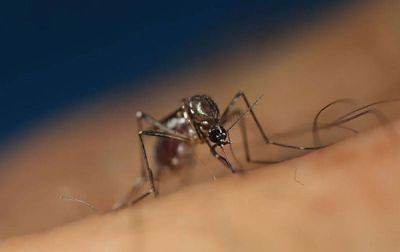Philippines deploys river rangers in battle against plastic
MANILA: Using a long-handled net, Ronnel Narvas scoops up discarded plastic soft drink bottles, shopping bags and palm-sized sachets as he wades through a foul-smelling tributary in the Philippine capital Manila.
Narvas, 30, is one of more than a thousand rangers employed by the government to clean up the city's waterways, where tonnes of rubbish end up every year.
"It's disappointing, because no matter how diligent we are at cleaning up, the garbage does not run out," Narvas told AFP of the never-ending battle against trash.
"But we need to persevere... at least we are managing to reduce it instead of letting it pile up more."
Inadequate garbage collection services, lack of disposal and recycling facilities, and grinding poverty have been blamed for the growing problem of plastic waste across the country.
The Philippines produces about 61,000 tonnes of trash every day, up to 24 percent of it plastic, figures from the environment department show.
The country is the world's top source of plastic that ends up in the oceans, a 2021 study by Dutch non-profit The Ocean Cleanup found.
It said the Pasig river, which flows through the capital and into Manila Bay, is the "most polluting" in the world.
'Swimming' in plastic
Sachets and other single-use plastics are a huge part of the problem.
"When the rains come, we are literally swimming (in) them," Environment Secretary Maria Antonia Loyzaga said last month.
"But on a daily basis, we consume plastics in the fish caught in our seas, through the substandard water bottles we use and in the very air we breathe," Loyzaga added.
Nieves Denso, a 63-year-old widow, sells small packets of powdered chocolate, coffee, milk, shampoo and detergent from her tiny shop in a riverside slum in Manila.
Sachets are popular in the Philippines, where many people cannot afford to buy household products in large quantities.
Denso collects the empty sachets and every few days she pays children 10 pesos (17 US cents) to take the garbage to a nearby road where she hopes it will be collected.
But she admitted she has no idea if her trash ends up there, or if the children throw it in the river or on vacant land where many of her neighbours discard their







